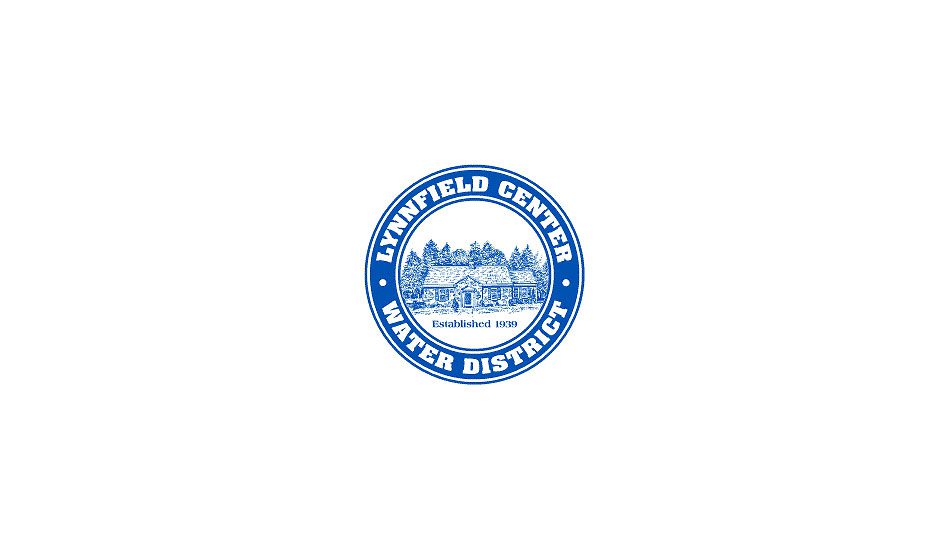LYNNFIELD — The Lynnfield Center Water District’s Annual District Meeting and fiscal year 2024 Special District Meeting will take place on Thursday May 23, beginning at 6 p.m. at the Al Merritt Media and Cultural Center, 600 Market St.
District meetings are open to LCWD ratepayers. Residents are asked to check in upon their arrival. Only residents who live within the district and were registered to vote 20 days before the meeting, will be allowed to vote in the district election, Annual Meeting and Special Meeting. Former Town Moderator and attorney Joe Markey will be moderating both meetings.
“These meetings are a great chance for the organization to present our course of action for the upcoming year and provide information on how we operate and ultimately what it costs,” said LCWD Director John Scenna. “There is a lot happening behind a water bill, often the only interaction customers have with our operation. There are several layers of what we do daily that are often overlooked and drowned by discussion of larger capital projects. Our goal is for this meeting to shine some light on other initiatives and give an update on the larger items we are working on.”
The Annual District Meeting will begin with elections for commissioner, clerk and treasurer.
Former Finance Committee Chair Jack Dahlstedt will be running unopposed for a three-year term as water commissioner, Tim Doyle is unopposed for a one-year term as district clerk and Kevin Sullivan is unopposed for a one-year term as treasurer. All candidates have submitted letters of intent.
During the Annual District Meeting, the Board of Commissioners will propose the fiscal year 2025 (FY25) annual operating budget. The Lynnfield Center Water District’s FY25 budget cycle runs from July 1, 2024 through June 30, 2025.
Among various items, the budget includes:
- Salaries and indirect costs of employees (including health care and post-employment and retirement benefits).
- Costs for materials and supplies, equipment, utilities and contractual expenditures, and the cost for chemicals and testing as they apply to treatment.
- Debt and interest on prior capital expenditures; regulatory payments to the DEP and EPA-mandated tasks; and ongoing professional services and contract services.
Other articles will look to continue investing in existing equipment and infrastructure that LCWD uses in its day-to-day operations. Those include a continued investment in evaluation and upgrades to the SCADA system, which operators use daily to monitor system operations and the safety of water quality; upgrade of water meter infrastructure; and funds to pay the cost of constructing water system improvements in advance of Department of Public Works road program projects. District voters will also be requested to support an article which partially funds reconstruction of roadways and related infrastructure in areas disturbed by district projects.
Article 9 will ask ratepayers to approve funding in order to complete a mandatory inventory and analysis of water services in accordance with DEP lead and copper requirements. Article 10, requests funds to continue operation of the pilot PFAS treatment facility at Station 2 at Main Street for an additional year in accordance with DEP issued permits.
Article 16 will request ratepayers to approve a lease agreement with the Reading Municipal Light Department (see separate story).
LCWD Board of Water Commissioners Chair Joe Maney will not be seeking re-election and will be resigning at the conclusion of the meeting, after a six-year tenure as commissioner, many of which he has served as chair. He urges LCWD ratepayers to attend this meeting and remain informed of progress and plans.
“The nature of our organization, and the Charter upon which we run, is that the direction in which we proceed in terms of projects, staff, directives, is ultimately set by our customers. Your vote matters. This is a great opportunity to understand our process and what is currently planned,” said Maney.
There will also be a brief Special District Meeting to address some current fiscal year 2024 items, including supplementing the existing FY24 budget to compensate for unanticipated expenditures and payment of invoices from the prior fiscal year. Ratepayers will also be asked to continue funding the General Stabilization Fund and the Capital Stabilization Fund for future capital projects.
“These are stabilization accounts that did not exist several years ago. We created them and have been investing in both consistently since their initiation. They act as an additional savings account for the district in times of unanticipated needs and they also help support a strong bond rating for our portfolio,” said Scenna.





